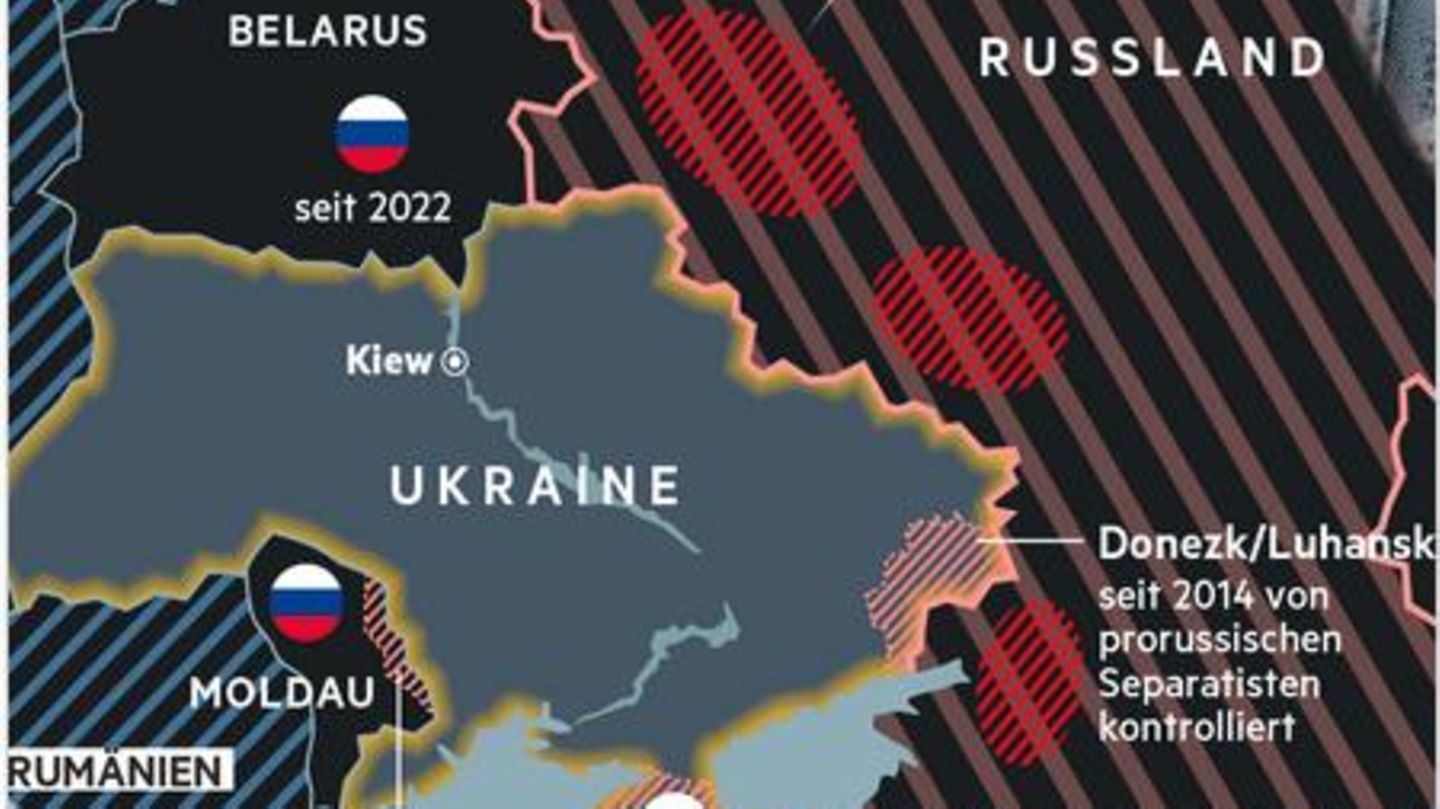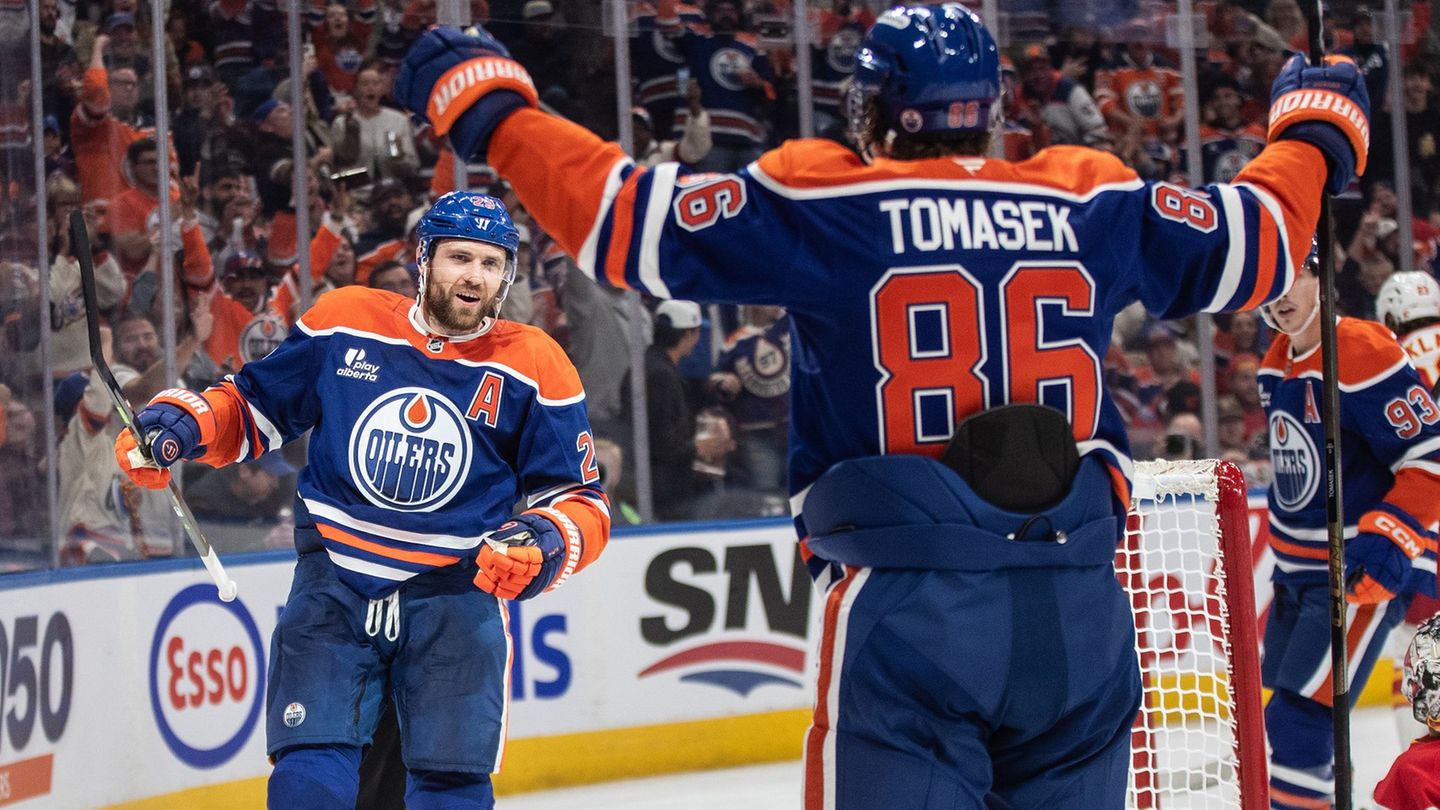With the recognition of two regions in eastern Ukraine as independent “people’s republics”, Russia was sharply criticized internationally. Now Putin’s troops have invaded all of Ukraine. Then why the preliminary skirmish?
What the West and Ukraine have feared for weeks has happened: Russian President Vladimir Putin has had his troops march across the borders. And this despite the fact that Moscow has repeatedly emphasized in recent weeks that no one is planning an attack on Ukraine. It is the pinnacle of provocation – and a further attack on Ukraine’s integrity and sovereignty as enshrined in international law. The fact that the Russian government recognized the eastern regions of Donbass, Donetsk and Luhansk, as independent “people’s republics” only two days ago was severely sanctioned by the West.
But the question arises: why did Putin go to the trouble of courting Donbass when he’s already after all of Ukraine?
Ukrainian integrity – a historical context
After the fall of the Soviet Union, Ukraine was accorded territorial integrity internationally under international law. An overview of the most important events:
1991: The Budapest Memorandum was signed with the end of the Soviet Union. In it, the USA, Russia and Great Britain assured the territorial integrity of the states of Belarus, Ukraine and Kazakhstan. The only requirement: you renounce nuclear weapons (which were on the territory of the Soviet Union after its dissolution).
2014: Russia occupies Crimea, thereby violating not only the Budapest Memorandum but also international law. As a result, the eastern and pro-Russian regions of Donbass – Donetsk and Luhansk – declare their support independent “people’s republics”. This was made possible by Russia unofficially smuggling soldiers into these regions, thereby militarily disempowering the governments. With the Minutes of Minsk the OSCE, Russia and Ukraine agreed on a ceasefire.
2015: Germany and France bring a second ceasefire agreement – “Minsk II” – on the way after the ceasefire was not respected.
2022: Russia recognizes the two “People’s Republics” Donetsk and Luhansk as independent and thus rejects the Minsk peace treaty.
“The Donetsk and Luhansk regions are actually of no economic importance for Russia at all,” says Alexander Wöll, chairman of the German Association of Ukrainists and professor for culture and literature of Central and Eastern Europe at the university in Postdam. It’s similar with Crimea, “it’s just expensive,” but the annexation means that Russia can militarily cover the entire Black Sea region towards the Orient. “Luhanks and Donetsk don’t need Putin for anything in the world.” However, Wöll is convinced that Putin used the regions to prepare for the Ukraine war. To convince people that genocide is taking place there and that Russia has annexed the region to protect the population is nonsense. “But it is the preparation for the war” – which has now actually followed.
Eastern Ukraine is not an independent state
In conversation with the star In any case, Wöll prefers to speak of annexation rather than recognition of independence. Russia had already militarily occupied the east of the country during the Ukraine conflict of 2014/15 – even if the soldiers who marched in at the time were not recognizable as such due to the lack of uniforms. “In this way, Russia was able to dismiss accusations of an occupation and say that the local people had fought for their independence,” Wöll explains.
Stefan Oeter, professor of law at the University of Hamburg’s Institute for International Affairs, speaks of a “splitting by the Russian military.” The Republic of North Cyprus is a similar case. The part of the island was occupied by Turkey around 50 years ago, the international community does not recognize it as a state. “Basically, these are artificial structures that depend on Russia and are interspersed with Russian military and secret service people,” says Oeter.
According to international law, regions have the right to secede from a state. But: “There is an iron rule that says that third countries are not allowed to get involved as long as the process is not completed,” explains Oeter. In other words, the state must first agree to the sovereignty of a specific region within the country’s borders. Early recognition, as in the case of eastern Ukraine, “is a violation of international law and the ban on intervention”.
“Peace cannot be taken for granted
Wöll describes it as a farce to claim that the citizens of eastern Ukraine overthrew the local government for the sake of independence. The fact that Putin only recognizes eastern Ukraine as independent after seven years is part of a long-term strategy. A plan that he has already used in Transnistria in Moldavia and South Ossetia in Georgia. Both countries are considered NATO candidates. According to Wöll, the military interventions served to prevent accession. Only countries without military conflicts in their own country can become members. That is why Ukraine has not yet joined the western military alliance.
The chance will not arise any time soon either, because with the Russian invasion, Putin issued a clear declaration of war. NATO Secretary General Jens Stoltenberg described the invasion as a “brutal act of war.” It was a deliberate, cold-blooded and long-planned invasion, he said in Brussels. “We now have a war in Europe on a scale and in a way that we thought was a thing of the past.” Stoltenberg spoke of “a new normality for our security” – not without adding: “Peace cannot be taken for granted.”
Source: Stern
David William is a talented author who has made a name for himself in the world of writing. He is a professional author who writes on a wide range of topics, from general interest to opinion news. David is currently working as a writer at 24 hours worlds where he brings his unique perspective and in-depth research to his articles, making them both informative and engaging.




